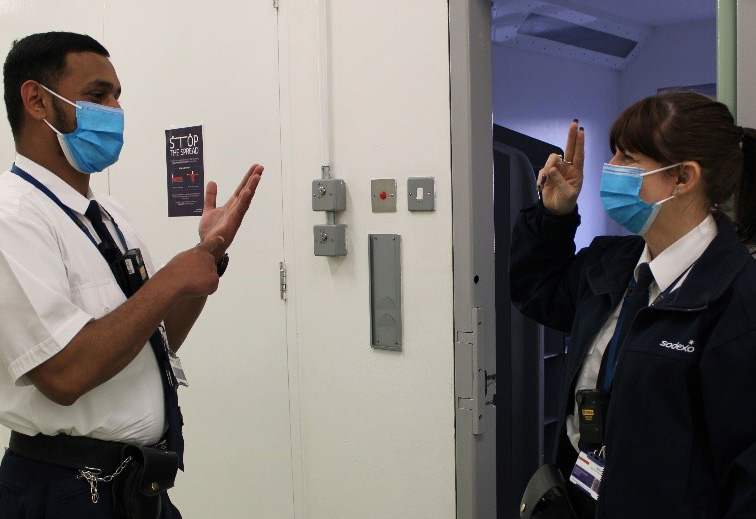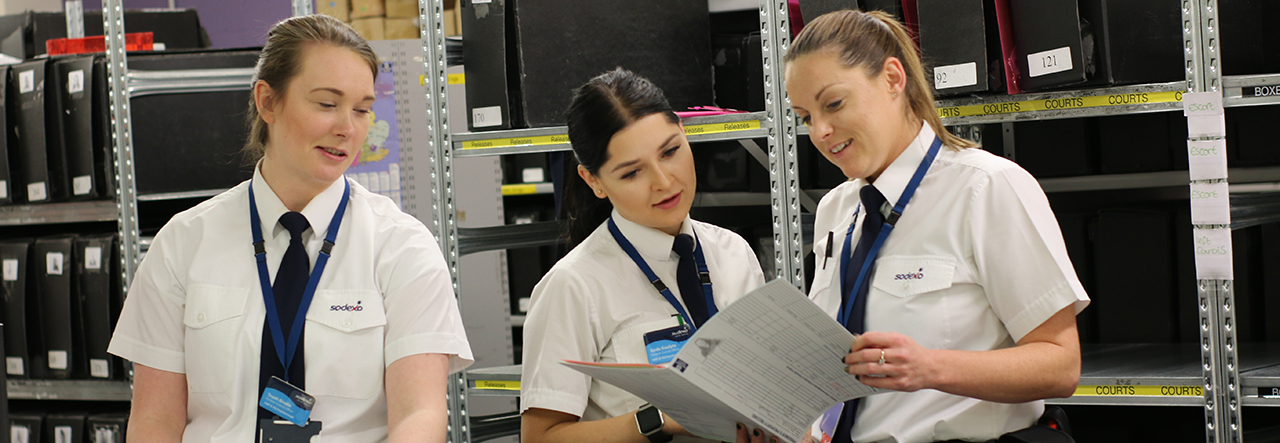Being able to communicate clearly is essential in any environment. In a prison, particularly for those who have not been in custody before, it is even more vital. Find out how some of our colleagues at HMP Peterborough have been upskilling to help residents who are deaf or who have hearing impairments.
For residents who are deaf or have a hearing impairment, communicating can be a real challenge, increasing feelings of fear, confusion and isolation. 
As part of our commitment to treating residents with decency and respect, HMP Peterborough embarked on a project to upskill staff to be able to communicate using British Sign Language. Our intention was to enable residents to fully engage with staff, improving their feeling of safety by ensuring they have access to, and understand, information affecting their care and wellbeing. It would also empower residents to communicate their feelings, concerns and requirements without creating feelings of frustration or resentment, creating a more collaborative and supportive environment.
Being able to communicate using the individual’s preferred method helps to build trust between residents and staff. By creating this shared space, residents feel empowered to engage more effectively with the prison regime. They are better able to make choices that will impact on their future, including engagement with programmes and interventions to support their rehabilitative journey.
This training was offered to staff on a voluntary basis and uptake was much higher than expected, demonstrating the commitment of our colleagues to supporting those in our care and upholding the Sodexo mission to improve quality of life for all.
Prison Custody Officer Sally Fryer participated in the course. She said: “There were two main reasons for wanting to do this course, the primary being that I felt that it would come in useful with helping to communicate with any residents who had hearing difficulties – even at a basic level! Secondly, I have hearing difficulties myself so I felt having a basic understanding of British Sign Language would be beneficial to me.
"I’m confident that I will be able to use it [BSL] to support the residents in our care.”
Senior Prison Custody Officer Lyn Yorke added: “When I heard about the course through our Diversity & Inclusion team, I was keen to take part. The primary school I attended had a separate part for the deaf children and we had a sign language lesson each week. I remember that I really enjoyed it and, once I could communicate well enough, I started to form friendships with several of the non-hearing children.
I wanted to take this course not only to refresh my skills, but to prevent residents from feeling alienated and frustrated by a language barrier. Should we have any non-hearing residents, I want to be able to converse with them in a way that works for them. Prison can be a scary place, even without having difficulty in communicating.
By providing equality of access to information and support, we believe we will provide residents with a greater opportunity to make a successful transition back to the wider community, thereby reducing their risk of reoffending.
Find out how our justice business is supporting marginalised groups.
